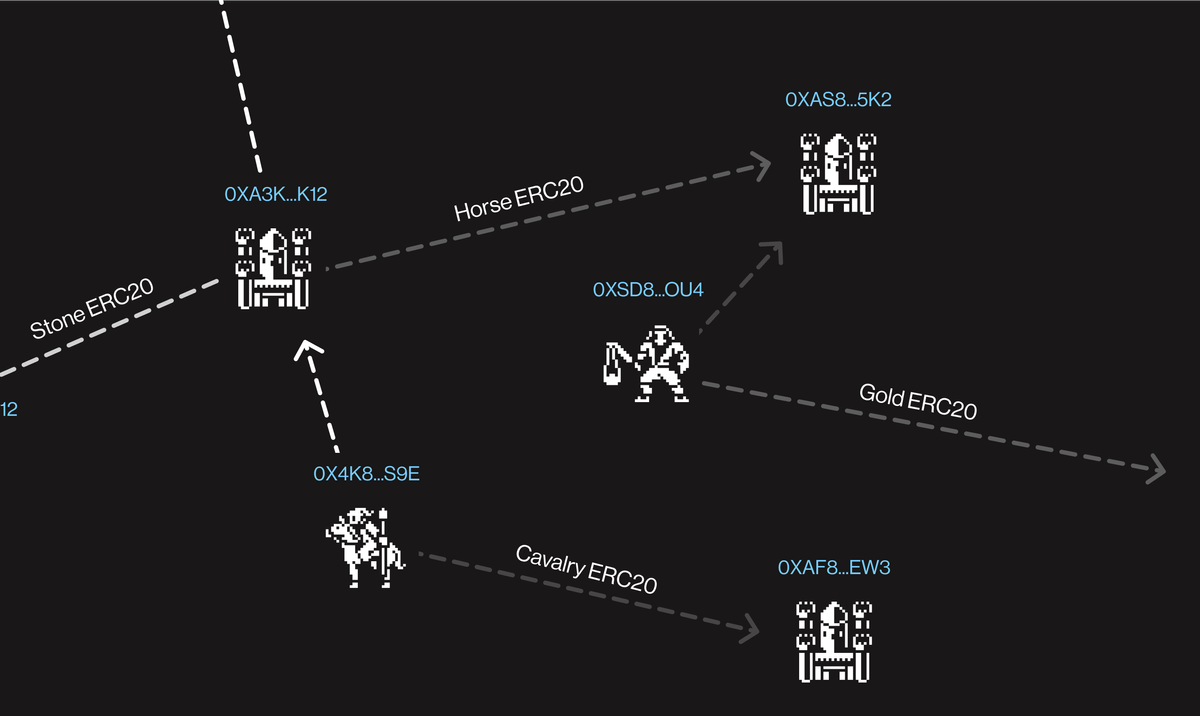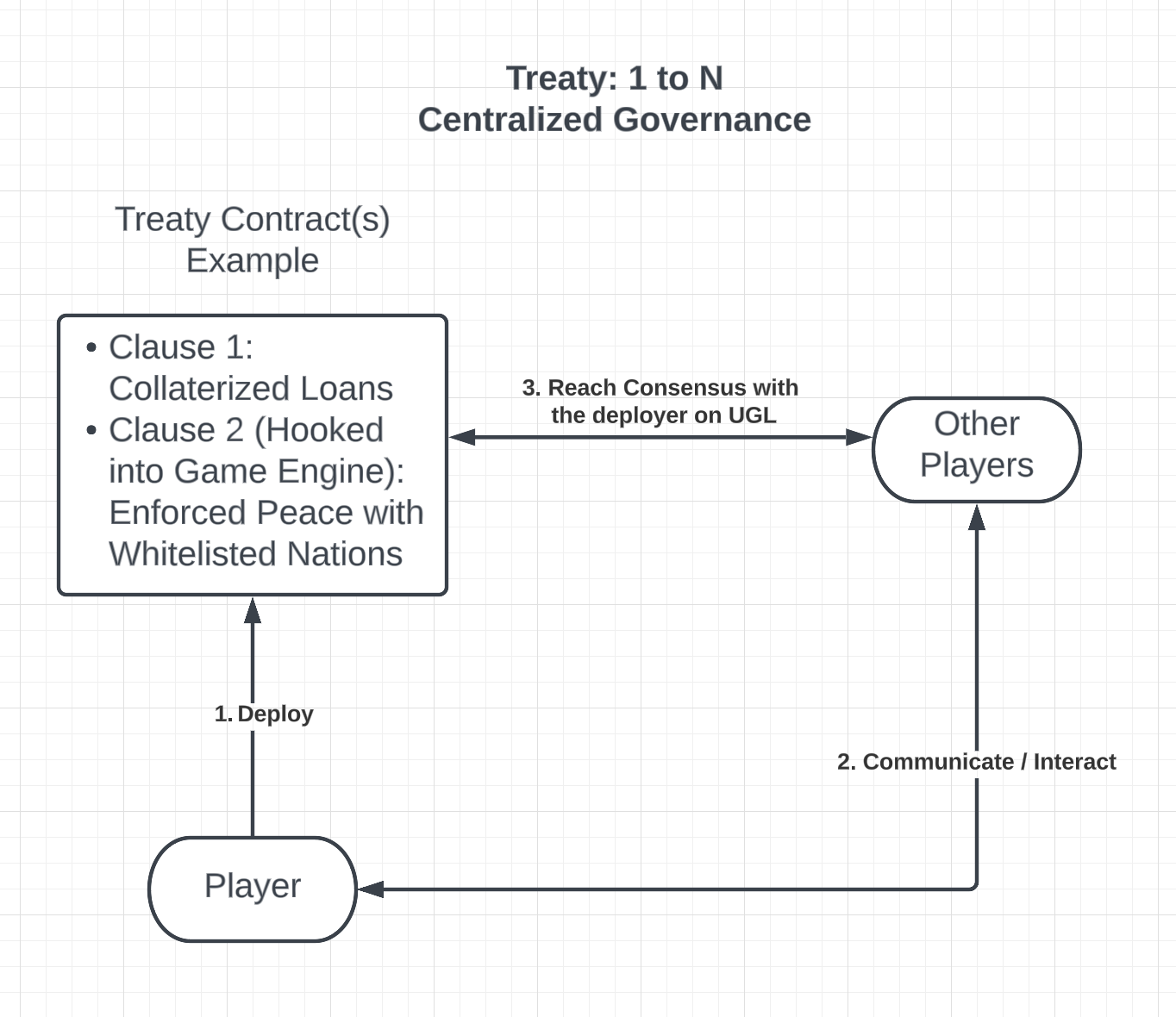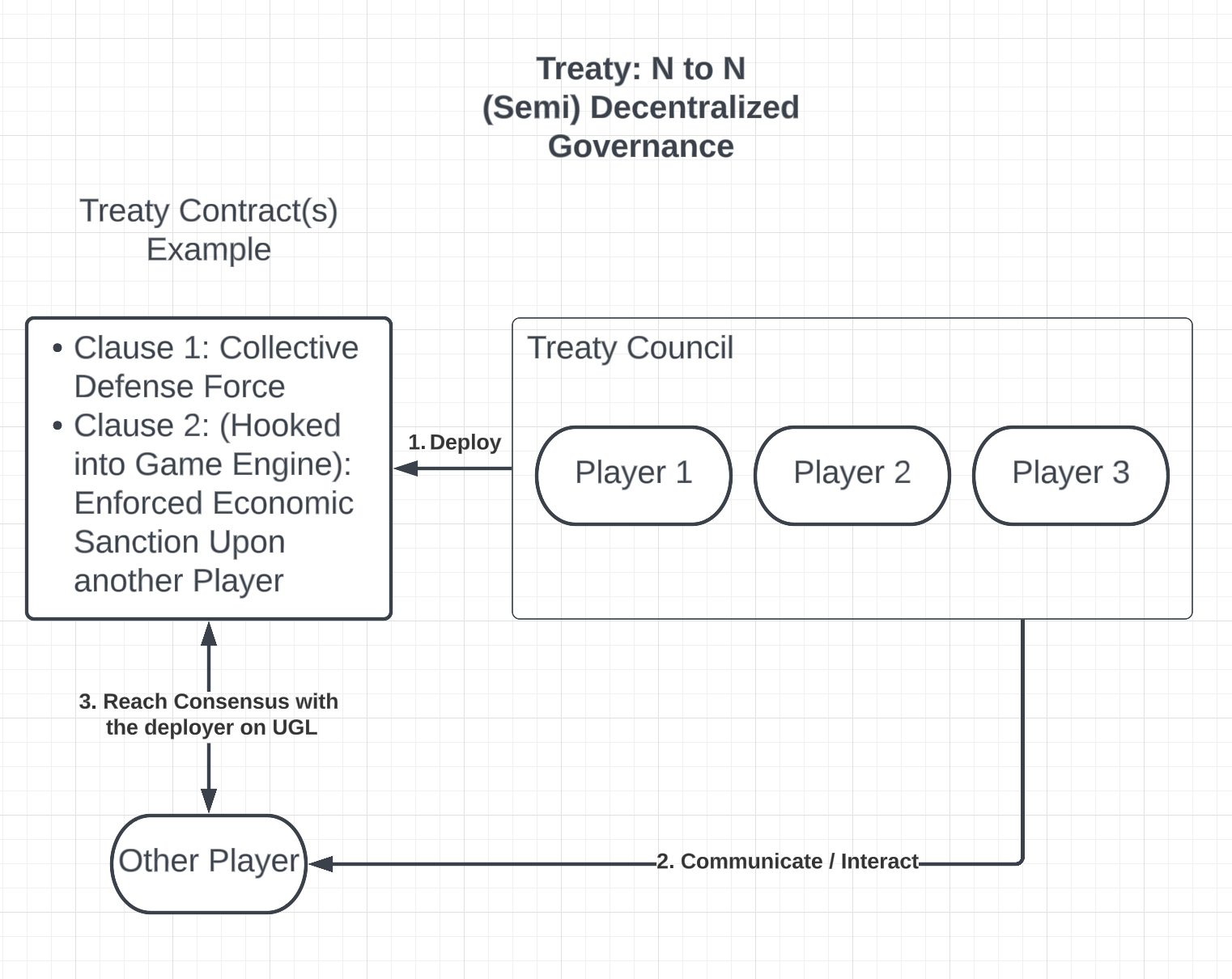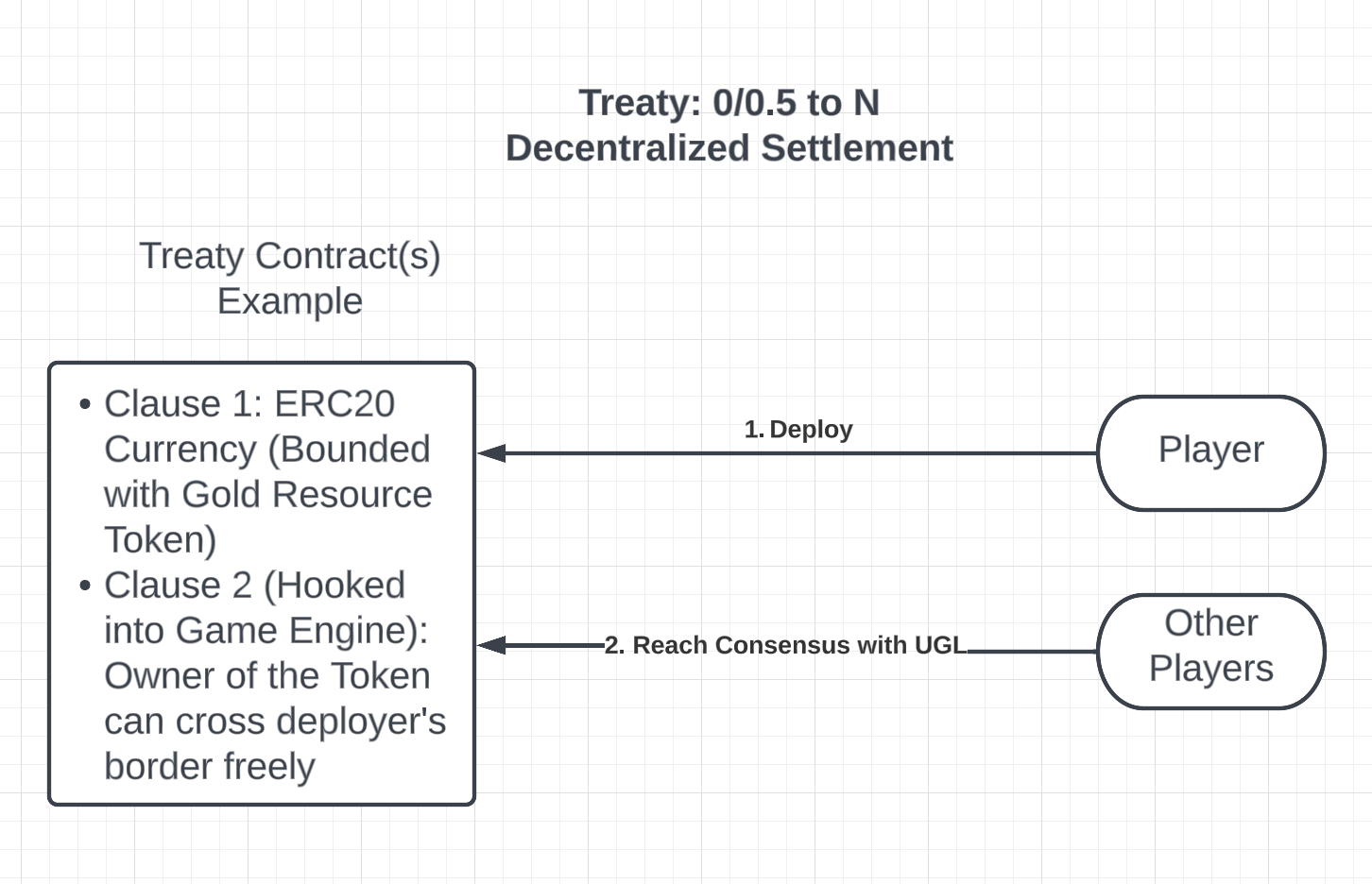Next Gen Onchain Gaming with User-Generated Logic

By Modeo
The next level of blockchain gaming is here. In this article, I'll explain the significance of Treaty from a game design perspective. Through on-chain social contracts, we can now expand the dimension of user-generated content and tap into a new realm of possibilities: user-generated logic (UGL). Until now, most people's impression of blockchain gaming was that it only helped to financialize the game. With Treaty, we want to demonstrate that financialization of assets is not the limit of blockchain gaming.
A game, at its core, is built on a set of rules, or physics, that are agreed upon by all players. The simplest example of this is rock-paper-scissors, where each option wins or loses against the others. Complex games, such as PlayerUnknown's Battlegrounds (PUBG), have thousands of rules that define how players interact with the game. For example, bullets that hit players in the head cause more damage than bullets that hit players in the chest. This mimics real-life physics, and is universally accepted without the need for explicit consent. The combination of this and other rules, such as the blue zones, makes PUBG one of the most successful battle royale games.
User-generated content (UGC) has been a staple in the gaming industry for years, with classics such as The Sims, Civilization, and Football Manager utilizing it to great success. However, due to the nature of game physics requiring universal consent, UGC has been limited in terms of players' creative potential. In Civilizations, for example, players have great enthusiasm for creating mods. Many mods such as Harmony in Diversity improve game physics. However, they only apply to players' local machines and require all players to sync on the same mod set in multiplayer games. There’s no way that those mods can be directly merged into the real game. As a result, local mods are not the most scalable usage of players’ efforts, which could’ve been applied to a greater audience. It’s reasonable that it is the way it is, because not all players would like to participate in this new set of physics that they didn’t purchase the game for.
It is understandable that mods rarely live in the global game state, as players often don't have a full understanding of a game's mechanics. For example, in Rise of Kingdoms, despite players working together to uncover the battle logics behind the game, there is still no consensus on how different troop types counter each other in different scenarios. It would be disastrous to allow players to tune physics based on incomplete information. This is another reason why we have seen mods that change physics only live locally on players' computers, and those that do get injected into the global state are mostly for cosmetic purposes.
Despite the barriers to designing game physics, players have always been participating in a broad scheme of game design. It's not just about playing by the rules; we're constantly building on top of them. For example, in Civilization, although there's no effective alliance system by design to coordinate between nations, players often reach verbal agreements among themselves for their own purposes. Two nations close to a stronger civilization may collaborate informally. In many other 4x games (like CoC, LoK, RoK, etc.), with an inherent alliance design, the “council”, unsatisfied with the framework given by the game studio, have gone wild to come up with a whole internal management system of their own. Social contracts like these that operate on game physics are very common in all genres of games, especially 4x/MMO games; we just don't always realize it, since there hasn't been a popular consensus machine for players to make their work tangible until the emergence of smart contracts on-chain.
We believe that Treaty opens up a new frontier in game design by allowing players to build on top of game rules and mechanics through user-generated logic (UGL) in smart contracts. This allows players to deploy different consensus models, social contracts that require no universal consent, into the game. These models, which go beyond the traditional game physics, enable players to record their agreements on-chain and build upon each other's logics. Despite requiring no universal consent, these pieces of logic are directly hooked into the core game logic and executed permmissionlessly, creating a truly decentralized and player-driven gaming environment.
With this new frontier in game design, players are empowered to take on new roles and responsibilities in the game, such as becoming a central figure in a 1-N centralized governance model. For example, a player deploying their treaty can use it to make collateralized loans to other players. Players can then asynchronously agree to the loan terms. Additionally, through the ability to hook logic into core game functions, the lender can also whitelist certain players for a peace clause that disables them from attacking their nation. This enables players to expand the metagame in creative ways without impacting other players or breaking the underlying universal game physics.

Players can also implement a voting based DAO in their UGL. In the case of an economic sanction treaty, players in the treaty council can make agreements among each other and vote on rules of the sanction, such as which nations to target. The treaty rules will be enforced in the transfer function of the core game. Similarly to the 1-N model, no one outside of the flow will be affected, making treaties maximally flexible.

Both 1-N and N-N structures mirror social contracts and laws in human society. With the emergence of smart contracts, however, we now have a consensus structure entirely different from what we had before: a 0/0.5 structure. Once the deployer pushes the contract globally, anyone making interactions with it is only making an agreement with the contract itself. One such contract might state that anyone who owns a certain ERC20 currency is granted permission to enter a nation’s boundary. This condition is then enforced in the core game function move. This sequence of action happens entirely permmissionlessly. Never before had a conventional game enabled players to establish their own rule set like this.

The significance of on-chain social contracts in game design lies in their ability to expand the dimension of user-generated content and enable new forms of player interaction and collaboration. We believe that the next level of gaming lies in the ability of players to shape the rules and mechanics through user-generated logic (UGL) in smart contracts. By breaking free from the constraints of game physics and traditional user-generated content, UGL will pave the way for a new era of gaming, where players can collaborate, innovate, and create in ways never before imagined.
Don’t forget to join our Discord and participate in some treaties when the game launches!
